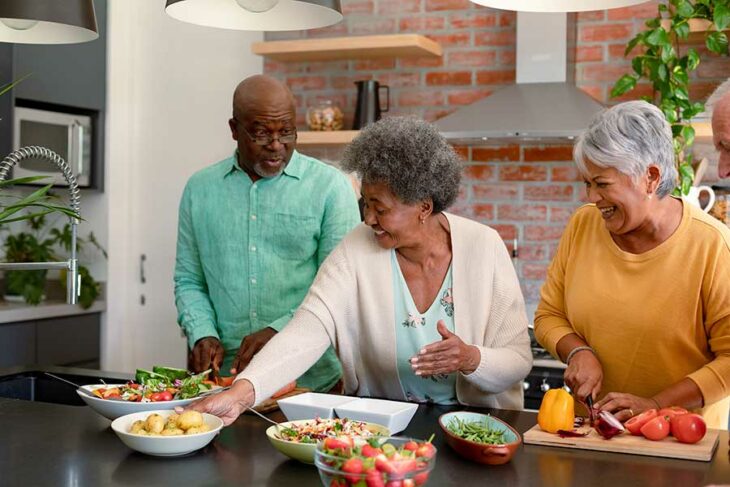Some may wonder why I let my parents slowly complete a task that I could accomplish much faster. In truth, I’m just helping them maintain their independence as safely as possible.
When I empty the many small trash cans around my parents’ home, I often hand momma and daddy a bag so they can help line the waste baskets. Momma immediately grabs her bag and goes about the task; she often enjoys being busy and helpful. Daddy, on the other hand, prefers not to be bothered and doesn’t like doing chores. When I hand him a bag, he shoots me an unappreciative look. He grabs his bag with an annoyed gesture and either immediately or eventually places it in the trash can nearest him. I ignore the gesture and piercing looks, but I always express or show my appreciation. I think he secretly likes being helpful.
Sometimes I decide to seek daddy’s assistance with opening a jar, tightening a screw or sorting out some dilemma I’m having. I usually can do those things alone but prefer getting his assistance. He often acts annoyed, but he helps his “baby girl” anyway. Then, there are things that he can do, but he doesn’t want to get up or change positions and asks me to do them instead. I usually encourage him to do them himself. Although he gives me an annoyed look and sometimes smarts off and says he’ll ask his son-in-law for help, he usually will do it himself in the end.
I don’t do this to be mean or vindictive. I want to encourage their mobility and independence as much as possible because both are important to their quality of life. I have read that having a sense of purpose helps seniors live longer with a better quality of life. We know that being physically active can reduce dependence on other people and medications and can help reduce or eliminate the impact of diabetes, hypertension, inflammation and other medical concerns.
Some days, my parents can accomplish the tasks I give them with little to no assistance, and other days, I abandon the requests altogether due to an injury, ailment, or weakness they’re experiencing. The chore list below is based on tasks they previously enjoyed or accepted as their responsibility before aging and dementia slowed them down.
- Take out the trash in the house, then bring the trash can to the curb and return it to the backyard once it has been emptied (Daddy)
- Wash dishes (Momma)
- Wash and/or fold laundry (Momma)
- Replenish the refrigerator with water and soda (Momma and Daddy)
- Change or help change the bed linen (Momma and Daddy)
- Generate a grocery list (Momma)
- Help take groceries into the kitchen and put them away (Momma and Daddy)
- Take used dishes to the kitchen (Daddy)
- Choose clothing to wear to appointments and events (Momma and Daddy)
- Prepare or help prepare a meal (Momma)
- Check the mail (Momma and Daddy)
- Retrieve the newspaper (Momma and Daddy)
- I also encourage them to engage in activities they traditionally have enjoyed. I urge them to reach out to grandchildren, siblings and other relatives and friends to increase their cognitive and social activity. Love, engagement and sense of purpose are all important to seniors.
Encourage independence and responsibility because it is good for those in your care. It may take them longer to accomplish the task than it would if you did it yourself, but the benefits outweigh any delay.
Dr. Tracy Daniel-Hardy is the author of “The Adventures of Butch and Ruby: Chronicles of a Caregiver” and director of technology for Gulfport School District. She may be contacted at tracy@drtracydanielhardy.com.



